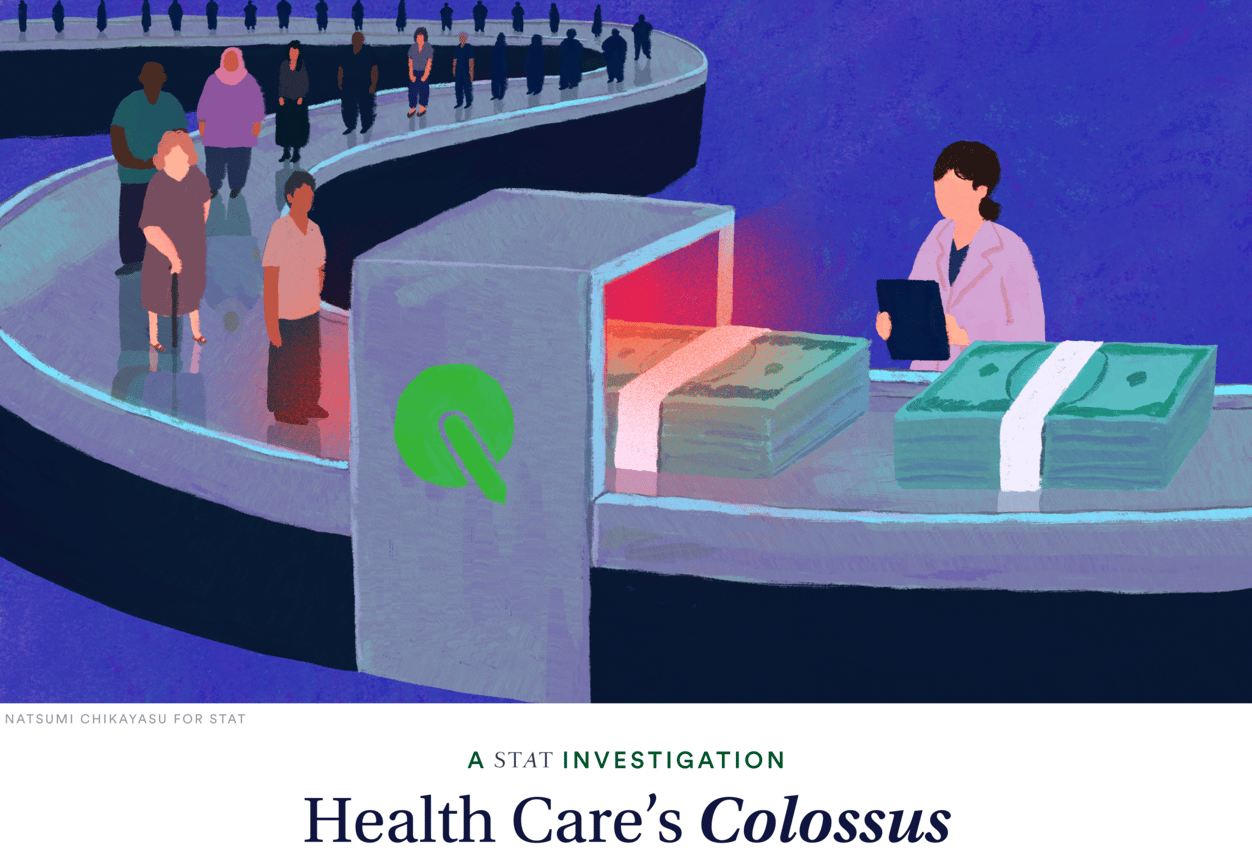stat investigations
How UnitedHealth minted a fortune by screening patients' arteries

Over the last two decades, UnitedHealth Group has assembled an unrivaled collection of physicians — some 90,000 doctors either work for the company or are under its influence. What happens when a profit-driven company has that much power?
It turns out that the nation's largest health care company pressed thousands of its clinicians to use a thinly tested medical device to screen people for artery disease, dramatically boosting payments from the federal government, even though many of the patients were not sick, a STAT investigation found.
Standard guidance exists for screening patients with abnormal pulses for artery disease, using a test involving blood pressure measurements. But UnitedHealth instead relies on a relatively new device that places sensors on a patients' fingers and toes. It's an imprecise tool that shouldn't be used in widespread screening, experts said, due to the potential for false positives.
Read Part 2 of the investigative series on how the company turned a single test into a gold mine. (Including an email in which the CFO actually wrote, let's "turn on the gas!")
human resources
She wants to teach PIs how to stop sexual harassment. Do they want to learn?
For years, the U.S. Equal Employment Opportunity Commission has given federal employers, including universities, a list of "promising practices" to prevent workplace harassment. Perhaps most memorable are online "bystander intervention" training sessions many of us have had to do. But in medicine and science, those trainings haven't actually reduced the incidence of sexual harassment, according to Arghavan Salles, a Stanford physician and researcher studying the issue. Half of all women on medical school faculties have experienced sexual harassment at work, by some measures.
So Salles tried to design something better. Ending Sexual Harassment: Teaching of Principal Investigators, or E-STOP, is an online training program with eight short modules spread out over six to nine months (as data suggest this is more effective than a one-time session). Salles and her team have reached out to nearly 1,800 programs to join an NIH-funded randomized controlled trial to test if E-STOP works. But even after increasing the incentive to $300, only 100 programs have agreed to participate. "There's been a lot of, 'We already do a lot of this,'" she said.
The program would use interactive, choose-your-own-adventure elements to teach principal investigators tenets of civility, implicit bias, and frameworks for communication. "Most of us have never had any training or education about how to have difficult conversations with our trainees, how to support them in going through an experience where they do decide to report," Salles said.
— Isabella Cueto
first opinion
How a nurse went from studying unequal pain treatment to living with it
When Staja "Star" Booker arrived at an urgent care clinic after a nasty fall on ice, she decided not to tell anyone that she was a registered nurse and a Ph.D. student studying chronic pain and structural racism. It was a masochistic experiment with sobering results: None of the clinicians who saw her asked her to rate her pain. None checked if her pain improved or worsened. And nobody offered any treatment — not even Tylenol — after four hours in an emergency department observation room.
In a First Opinion essay, Booker writes about what she learned when her professional interest — being Black and in pain — became her real life medical experience. "Like so many adults I had interviewed," she writes, "I was now left to determine how I would move forward from — or with — this chronic pain."


No comments